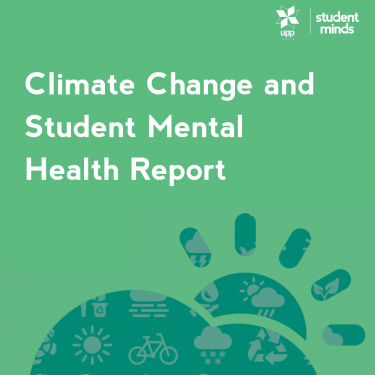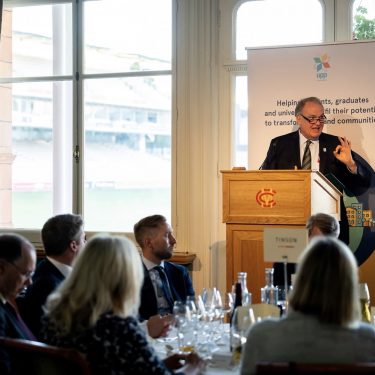Over 30 universities sign new “Civic University Agreement” to reaffirm local role
Over THIRTY of Britain’s leading universities have reaffirmed their commitment to their local communities by pledging to put the economy and quality of life in their home towns and cities at the top of their list of priorities.

The institutions – which include many of the best-known names in higher education – are committing to produce a “Civic University Agreement” in partnership with local government and other major institutions in their area.
The new agreement is a key recommendation in a report published today by the Civic University Commission set up by the UPP Foundation and chaired by the former Head of the Civil Service, Lord Kerslake.
The report sets out how universities have the capability, opportunity and responsibility to further support the places where they are based to solve some of their most pressing and major problems.
These issues range from helping local business adapt to technological change, to boosting the health of local people, improving education for school pupils and adult learners, and training and developing new civic leaders in every field from politics to the arts.
The report aims to help universities build on the excellent work that many of them are already carrying out in these areas, working alongside councils, employers, cultural institutions, schools and further education colleges.
Lord Kerslake said: “The deep economic and social changes that are happening in Britain today have, alongside Brexit, made the civic role of universities even more vital to the places they are located in. “The civic universities of the Victorian era were founded as expressions of civic pride, and as a way of sharing knowledge and opportunity at a time of rapid change.
“We are now entering a new industrial revolution when it will be even more vital that knowledge is accessible in as many communities as possible.
“It is not just people outside university grounds who will benefit. Universities are under unprecedented challenge and need to find a broader base of support. Universities need to be part of a community which is engaged, supportive and shares objectives.”
Lord Kerslake, Chair of the UPP Foundation Civic University Commission

Lord Kerslake, the chair of Sheffield Hallam University, and a former Chief Executive of Sheffield City Council and Permanent Secretary at the Department of Communities and Local Government, added: “Universities have an irreplaceable and unique role in helping their host communities thrive – and their own success is bound up with the success of the places that gave birth to them.”
Richard Brabner, director of the UPP Foundation, said: “Universities have the ability to make a real difference to the places they are located in through reinvigorating their civic role. But this is not just a responsibility, it’s also an opportunity.
“This is an important report with concrete recommendations that all universities will want to consider. The UPP Foundation created the commission to look at what it means to be a Civic University in the 21st Century and ask local people what they wanted from their local institution.
“We know that many universities want to build engagement with the community around them. It’s excellent news that such an impressive list of institutions has already signed up and the UPP Foundation strongly endorses the report’s findings.”
The report warns that there is a danger that any cut in the resources available to universities – for example, a reduction in student fees without the deficit being made up in funding from the Treasury – will mean that work already being done in this area – like help provided to schools and further education colleges – could be slashed.
The report was based on evidence-gathering sessions held across England, with input from civic leaders such as Greater Manchester mayor Andy Burnham. The authors also commissioned opinion polling and focus groups in cities and towns to hear from the public what they wanted from their local university.
This research discovered communities welcome opportunities to connect with universities, and there is great local pride about how universities put their hometown on the map.
The report says that the Government needs to fundamentally review policies to support further civic engagement by universities. Until the recent creation of an industrial strategy, government has for many decades been too indifferent about places within the United Kingdom – contributing to some regions falling behind.
But universities can take a vital step at this pivotal time by adopting the Commission’s idea of a Civic University Agreement setting out what they will offer local communities and which major local strategic needs they will seek to address. All this needs to be based on listening to the local community.
The Civic University Agreement signed by 31 universities includes four key points:
- Understanding local populations, and asking them what they want. Analysis of their place and people’s priorities are essential.
- Understanding themselves and what they are able to offer.
- Working with other local anchor institutions, businesses and community organisations to agree where the short, medium and long-term opportunities and problems lie for communities. Linking with local authorities and other local plans, such as the local industrial strategy is particularly important.
- A clear set of priorities. A process of agreeing clear priorities will therefore be necessary and, again, this is where collaboration and aligning resources with local authorities, LEPs (Local Economic Partnerships), NHS bodies and the like can help to identify the live issues that universities can most usefully help with.
Appendix
Full text of the “Civic University Agreement Statement”
Universities are proud of the places and communities we share. They have shaped us, and we have shaped them. These may be towns, cities or even whole regions; often rural. Some universities have been civic institutions for over a century, others are civic institutions that have only relatively recently become universities. But, as a sector, we are united by our commitment to delivering opportunity and prosperity to the people and communities with whom we share our place.
Universities have long worked to support social mobility; drive innovation and economic growth; and support the cultural strength of our communities. However, the profound economic and social changes that are happening across Britain today has made the civic role of universities even more vital. The time is right, therefore, for us to focus and strengthen our efforts. Universities must examine, with purpose and with rigour, how we should fulfil our civic missions in the future.
That is why we fully support the recommendation in the UPP Foundation Civic University Commission to establish a new approach – a Civic University Agreement.
As signatories of this statement we are pledging our universities to develop Civic University Agreements. The agreements will better align our priorities with those of our local partners. Alongside schools, further education colleges, local authorities, charities, the NHS, civil society and businesses large and small, we want to make sure our place thrives in the coming decades.
This is not how government has recently thought about universities. As the cost of paying for a degree has shifted towards students, so too have policy, regulation and incentives increasingly emphasised the private benefit of a degree over universities’ public good. Whichever way universities are funded, we believe the public and private benefits from higher education must be developed together.
The long-term funding settlement for our sector will inevitably impact on what we can do and the extent to which we can do it. This includes our civic role. However, within that constraint this statement is a commitment from us, as autonomous institutions, to continue to serve the educational, economic and societal interests of our communities and our place. We will continue to embed our civic responsibilities into the core of what we do; be this research, education or knowledge exchange. We hope that funders recognise and continue to support this.
We will publish our Civic University Agreements publicly. As we develop them, we will be driven by the following principles:
1. As place-based institutions we are committed to attaching a high-priority to the economic, social, environmental, and cultural life of our local communities.
2. Our civic role will be informed by an evidence-based analysis of the needs of our place, developed collaboratively with local partners and informed by the voice of our local community.
3. We will collaborate with other universities and anchor institutions and form partnerships to overcome the challenges facing our local communities.
4. With our partners, we will be clear about what we do and how we measure it, so we can say with confidence what we have achieved – and how we might do better in the future.
As Universities, we are responsible to our students and our staff, but we are also responsible to the places around us. Our Civic University Agreements will be an opportunity to set out clearly, coherent and creatively how we will fulfil that responsibility.
List of signatories
Professor Colin Bailey, President and Principal, Queen Mary University of London
Professor Liz Barnes, Vice-Chancellor and Chief Executive, Staffordshire University
Sir David Bell, Vice-Chancellor and Chief Executive, University of Sunderland
Professor Dame Janet Beer, Vice-Chancellor, University of Liverpool
Professor Paul Boyle CBE, President and Vice-Chancellor, University of Leicester
Professor Stuart Croft, Vice-Chancellor and President, University of Warwick
Professor Chris Day, Vice-Chancellor and President, Newcastle University
Professor Sir David Eastwood, Vice-Chancellor, University of Birmingham
Professor Graham Galbraith, Vice-Chancellor, University of Portsmouth
Professor David M A Green CBE, Vice-Chancellor and Chief Executive, University of Worcester
Professor Sir Chris Husbands, Vice-Chancellor, Sheffield Hallam University
Professor Koen Lamberts, President and Vice-Chancellor, University of Sheffield
Professor John Latham, Vice-Chancellor, Coventry University
Professor Geoff Layer, Vice-Chancellor, University of Wolverhampton
Professor Susan Lea, Vice-Chancellor, University of Hull
Patrick Loughrey, Warden, Goldsmiths, University of London
Professor Helen Marshall, Vice-Chancellor, University of Salford
Professor Quintin McKellar CBE, Vice-Chancellor, University of Hertfordshire
Professor Trevor McMillan, Vice-Chancellor, Keele University
Professor Kathryn Mitchell, Vice-Chancellor and Chief Executive, University of Derby
Professor Sir Anton Muscatelli, Principal and Vice-Chancellor, University of Glasgow
Professor Paddy Nixon, Vice-Chancellor and President, Ulster University
Professor Nick Petford, Vice-Chancellor, University of Northampton
Professor Judith Petts CBE, Vice-Chancellor, University of Plymouth
Professor Colin Riordan, President and Vice-Chancellor, Cardiff University
Professor Mark E. Smith, Vice-Chancellor, Lancaster University
Professor Mary Stuart, Vice-Chancellor, University of Lincoln
Professor Adam Tickell, Vice-Chancellor, University of Sussex
Professor Saul Tendler, Acting Vice-Chancellor and President, University of York
Professor Shearer West, Vice-Chancellor and President, University of Nottingham
Professor Steven West CBE, Vice-Chancellor, President and Chief Executive Officer,
University of the West of England
UPDATE – 14/02/2019
Since the publication of the report, a further 6 university leaders have signed the statement committing their institutions to develop a Civic University Agreement (totalling 37 universities).
Professor George Boyne, Principal and Vice-Chancellor, University of Aberdeen
Professor Hugh Brady, Vice-Chancellor and President, University of Bristol
Professor David Latchman CBE, Master, Birkbeck University of London
Mr Andrew Rhodes, Registrar and Chief Operating Officer, Swansea University
Professor Sir Steve Smith, Vice-Chancellor and Chief Executive, University of Exeter
Professor Steven Spier, Vice-Chancellor, Kingston University








